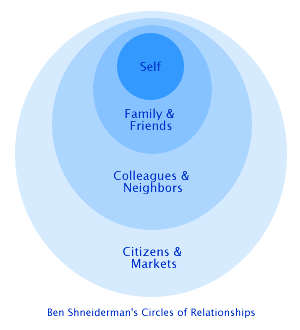Bruce Schneier, in his piece: Casual Conversation, R.I.P, suggests that, as a result of the recorded nature of online interactions, the very foundation of casual conversation is beginning to change:
“Everyday conversation used to be ephemeral. Whether face-to-face or by phone, we could be reasonably sure that what we said disappeared as soon as we said it. Of course, organized crime bosses worried about phone taps and room bugs, but that was the exception. Privacy was the default assumption.”
Indeed, we do take that privacy for granted. What we said behind someone’s back wouldn’t reach them unless the person we confided in told them directly. There was nobody taking notes, nobody recording this conversation on the record. What we said was contained securely in the moment: no future action could recreate it.
Continue Reading: On the Record, by Default
